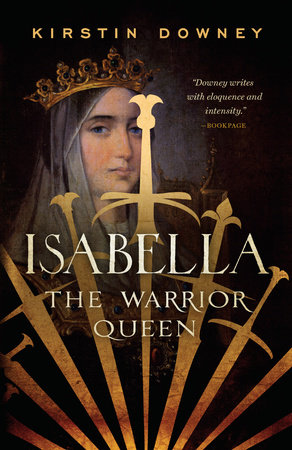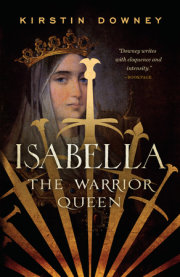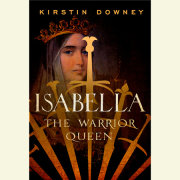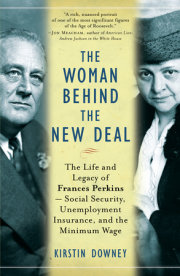PrologueIn a castle on a steep promontory overlooking the windswept plains of north-central Spain, a slender red-haired princess finalized the plans for a ceremony that was likely to throw her nation—already teetering toward anarchy—into full-fledged civil war.
Her name was Isabella, and she had just learned that her older brother, King Enrique—known as Enrique El Impotente, which symbolized his failings, both administrative and sexual—had died.
King Enrique’s lascivious young wife, who had occupied her time bestowing her favors on the other gentlemen of the court, had produced a child, but many people doubted that the king was actually the child’s father. Isabella had decided to end the controversy over the succession by having herself crowned queen instead. The twenty-three-year-old woman was essentially orchestrating a coup.
No woman had ruled the combined Kingdoms of Castile and León, the largest single realm on the Iberian peninsula, in more than two hundred years. In many European countries, it was illegal for a woman to rule alone. On the rare occasions when women reigned, it was usually as regent for a son who was too young to govern. Isabella had a husband, Ferdinand, who was heir to the neighboring Kingdom of Aragon, but he had been traveling when the news of Enrique’s death arrived, and she had decided to seize the initiative. She would take the crown for herself alone.
On that bitter-cold morning in December 1474, Isabella added the finishing touches to an ensemble intentionally designed to impress onlookers with her splendor and regal grandeur. She donned an elegant gown encrusted with jewels; a dark red ruby glittered at her throat.
Observers already awed by the pageantry now gasped at an additional sight. On Isabella’s orders, a court official walked ahead of her horse, holding aloft an unsheathed sword, the naked blade pointing straight upward toward the zenith, in an ancient symbol of the right to enforce justice. It was a dramatic warning gesture, symbolizing Isabella’s intent to take power and to use it forcefully.
Acknowledging nothing out of the ordinary, Isabella took a seat on an improvised platform in the square. A silver crown was placed upon her head. As the crowd cheered, Isabella was proclaimed queen. Afterward she proceeded to Segovia’s cathedral. She prostrated herself in prayer before the altar, offering her thanks and imploring God to help her to rule wisely and well. She viewed the tasks ahead as titanic. She believed Christianity was in mortal danger.
The Ottoman Turks were aggressively on the march in eastern and southern Europe. The Muslims retained an entrenched foothold in the Andalusian kingdom of Granada, which Isabella and others feared would prove a beachhead into the rest of Spain. A succession of popes had pleaded in vain for a steely-eyed commander, a stalwart warrior, to step forward to counter the threat. Instead it was a young woman, the mother of a young daughter, who was taking up the banner.
The means she used were effective but brutal. For centuries to come, historians would debate the meaning of her life. Was she a saint? Or was she satanic?
As she stood in the sun in Segovia that winter afternoon, however, she showed no trace of fear or hesitation. Inspired by the example of Joan of Arc, who had died just two decades before Isabella was born and whose stories were much repeated during her childhood, Isabella similarly began to fashion herself as a religious icon. Inwardly infused with a sense of her own destiny, a faith that was “fervent, mystical and intense,” Isabella was confident to her core that God was on her side and that He intended her to rule. The questioning would only come much later.
Copyright © 2014 by Kirstin Downey. All rights reserved. No part of this excerpt may be reproduced or reprinted without permission in writing from the publisher.









